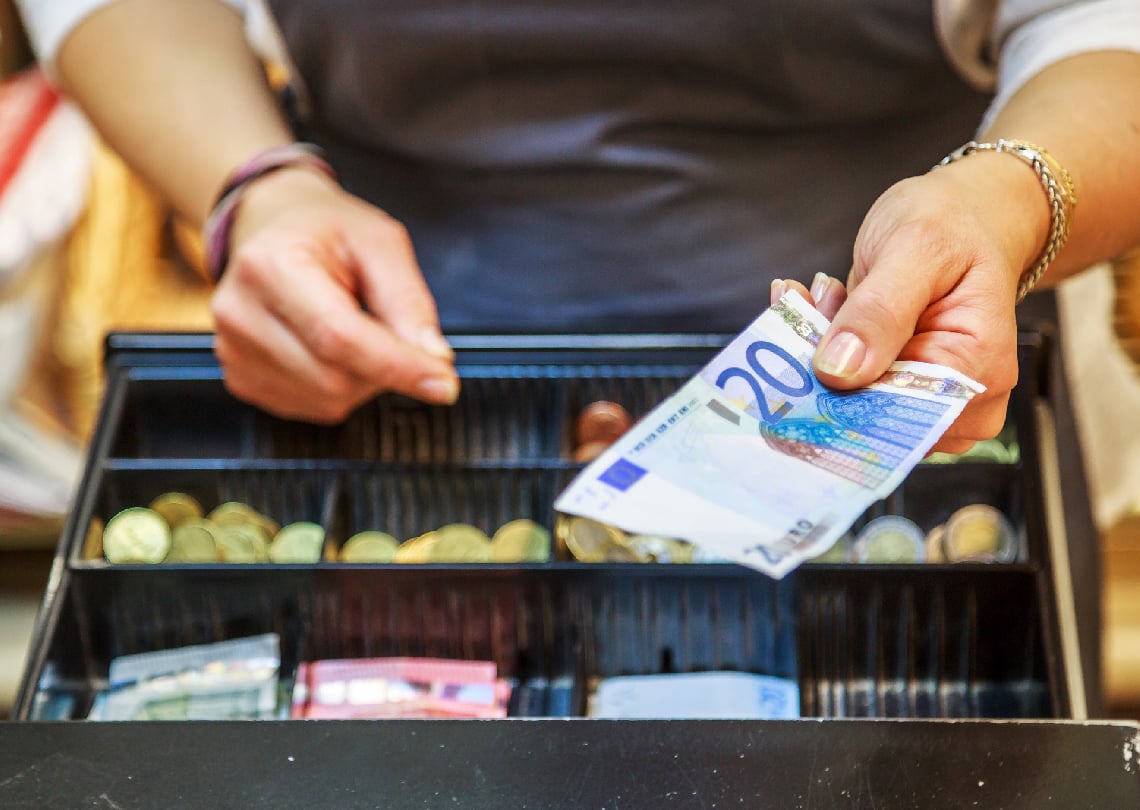Cash Handling in the Food Service Environment
Paul Race

Looking back, it's probably fair to say that I, like many others of my generation, ate in some dubious establishments after a student night out.
Over time, people have become more and more aware of the importance of food hygiene and in the UK, this has been reflected in the introduction of the Food Hygiene Rating Scheme introduced in England, Wales and Northern Ireland in November 2010. The scheme was introduced by the Food Standards Agency and is operated by 200 local authorities in Britain. As a part time resident of Scotland, I should point out that our Food Hygiene Industry Scheme pre-dates these measures, having been rolled out in Scotland in 2009.
What are these ratings and why are they important? The schemes provide consumers with information (using a 0 to 5 scoring system) that enables them to make informed choices based on hygiene standards in premises. In other words, transparency enables consumers to make informed choices. A colleague who frequently visits Wales tells me that there the scheme operates in a slightly different manner in that since November 2013 there has been a mandatory 'scores on the doors' policy that applies to any premises serving food. Does it work? 'Well my wife won't eat anywhere with a score below 5 so in our case it certainly has had an impact' he claims. He isn't what I would call a fussy eater and I think I sensed a hint of remorse at his wife's stringent application of the policy, but she is certainly not alone in making decisions based on the information provided. Hygiene is an important factor in many people's choice of restaurant or takeaway these days.
So why is this relevant to a blog about cash? The way cash is handled has important hygiene implications in any establishment serving food.
Now you may be cynical of a survey from MasterCard as reported in a 6 May 2014 article in the Daily Mail, entitled 'Dirty Money: There are more germs on a one pound coin than a toilet seat - but only 20 percent of people wash their hands after touching them'. The article concluded that 'over half of the 9000 respondents to the survey said they would prefer to use contactless payment rather than 'germ ridden coins'! Well if you put it that way!?
There is a serious point here. Though the introduction of plastic notes will have reduced the number of 'bacterial colonies' the article claimed were present on a paper note (27000), the fact remains that handling cash has hygiene implications in a food handling environment. It is certainly a fair comment that staff engaged in food handling should not be allowed to handle cash simultaneously.
In the context of the above I was delighted to read a press release from our colleagues in the US regarding the adoption of our CASHINFINITYTM CI-10 solution by PB Boulangerie Bistro. As well as improving customer service and staff productivity it was interesting to learn that 'for the community-based bakery this also means putting an end to continually taking latex gloves on and off between handling food and working the cash register.' Eliminating cash handling and processing at the check out enables the maintenance of excellent hygiene without putting pressure on staff and as the press release highlights 'This results in saving thousands of dollars per year on gloves.'
PB Boulangerie Bistro is just the latest food retailer to adopt point of sale cash automation solutions from Glory, not only to ensure the highest standards of hygiene but also improve operational efficiency. It’s a worldwide trend. From Umisushi, Singapore’s leading takeaway sushi restaurant, bakeries in Germany to Renmans with over 400 meat retailing outlets across Belgium, Luxembourg and France.
Consumers worldwide continue to use cash. At the same time, they expect the highest standards of hygiene at any outlet serving food. When it comes to 'handling' cash we can help.